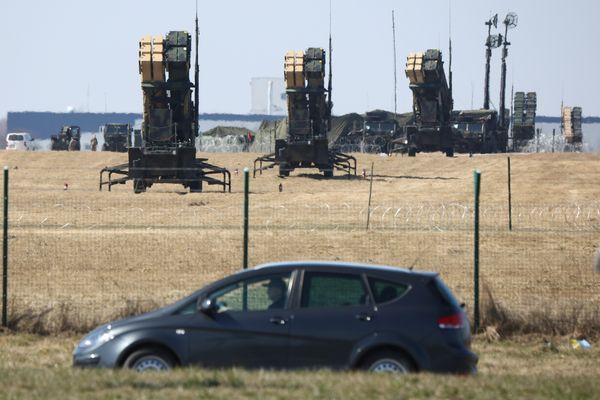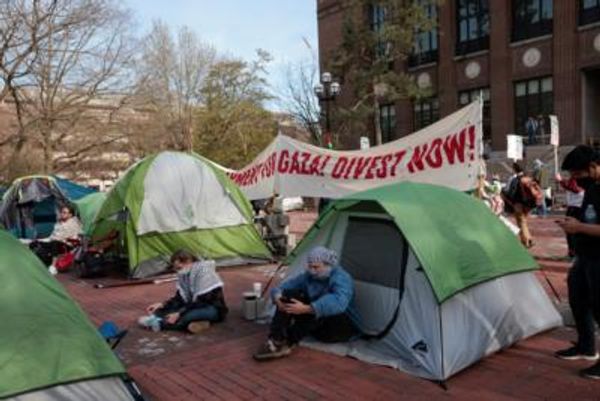
Sergei Lavrov, the Russian foreign minister, has moved to reassure allies in Africa that thousands of Wagner group fighters deployed to the continent will not be withdrawn after the mutiny led by their commander Yevgeny Prigozhin over the weekend.
In an interview with Russia Today, Lavrov pledged that “instructors” and “private military contractors” would remain in Central African Republic (CAR) and Mali, the two countries in sub-Saharan Africa where Wagner has the biggest presence.
Both are considered strategic prizes by the Kremlin, which sees them as a springboard to greater influence on the continent and a source of lucrative natural resources.
“At their request, several hundred servicemen are working in the CAR as instructors – this work, of course, will continue … Both the CAR and Mali appealed to the Wagner PMCs with a request to ensure the safety of their leadership,” Lavrov said. “Regarding the reports about who is panicking and about what, I did not see any panic. I did not see any changes in the relations of the relevant African countries with the Russian Federation.”
Wagner troops arrived in CAR in 2018 to bolster the regime of Faustin-Archange Touadéra, which was struggling to fight off a rebel offensive. Since, the mercenaries have become a powerful military, political and economic force in the unstable state.
Wagner deployed about a thousand personnel to Mali in December 2021 after a military coup and have been deployed against Islamist and other insurgents. The group has been accused of widespread atrocities in both countries. Should the group’s commitment to either regime weaken, both could fall, analysts have said.
However, the crisis in Russia does not appear to have had an impact yet on Wagner personnel deployed in Africa, either as combat troops or running the group’s companies devoted to extracting precious resources. Prigozhin has also deployed dozens of media specialists across Africa to run large disinformation campaigns promoting Russia and denigrating the west.
Local sources in Mali said a routine rotation of staff in the strategic country had been completed without incident in recent days and that Wagner mercenaries had continued operations with Malian forces fighting insurgents across the centre and north of the country over the last 72 hours.
Reported flights from one of Wagner’s bases in Russia to Mali via Syria may simply be routine logistics transports, observers said.
There have been no abnormal movements in Libya either, where another sizeable contingent of Wagner mercenaries is deployed in the eastern part of the country controlled by warlord Khalifa Haftar, according to a well-placed former official and analysts.
“Compared to the numbers of fighters deployed in Ukraine, Wagner have few personnel in Libya. It is a relatively efficient – and in several regards successful – operation, which was built in part by the Russian state itself. There may well be a change at the top of the group but I don’t think events in Moscow will cause Wagner to disappear altogether from Libya. Logistical support from the Russian state for Wagner might diminish for a while but the mission will likely go on running itself,” said Jalel Harchaoui, a Libya specialist at the Royal United Services Institute.
Observers in CAR reported no sightings of the group’s personnel on the main roads or at the country’s only significant international airport. Limited infrastructure in CAR means it would be very difficult for Wagner to move substantial numbers of men or large quantities of material without using major routes, though it is conceivable flights could take off from a more remote airstrip.
Wagner runs a large gold mine among a variety of business ventures, which the Kremlin is likely to be reluctant to abandon.
“The situation is extremely volatile. But what we have learnt from … Wagner in Africa, in the past five years, is that the group is resilient, creative, fearless and predatory, so it is less likely that the Wagner empire will instantly fall like a house of cards”, said Nathalia Dukhan, senior investigator at The Sentry, a US-based NGO, which will publish a report on Wagner Group activities in Africa on Tuesday.
Lavrov said that he had received several phone calls, including from “African colleagues” and insisted preparations for the Russia-Africa summit, which is due to take place at the end of July in St Petersburg, were “in full swing.”
Alia Brahimi, an expert on mercenaries at the Atlantic Council, said there may now be efforts to “nationalise” the Wagner Group, and that the close existing cooperation In Libya and sub-Saharan Africa between Wagner Group contractors on the ground and the Kremlin would make such a process much easier.
“On the other hand, it will be a test of loyalties for Wagner employees as these are mainly the old guard who weren’t recruited out of prisons and in fact enjoy an esprit de corps – and the commercial stakes in Africa are quite high,” Brahimi said.







